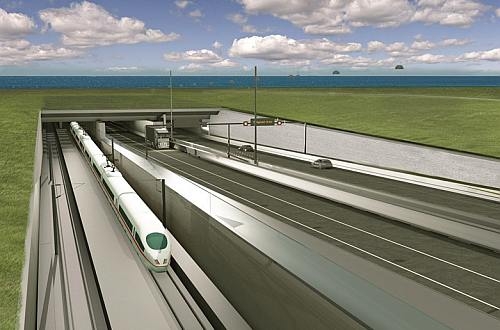Conditional contracts will be agreed no later than mid-May 2016 so that final and binding contracts can be signed with the successful contractors.
However, construction will be postponed until a German construction permit is in place. The contracts will be valid until the end of 2019 with the option to renegotiate them at that time.
The preferred bidders for the immersed tunnel are Vinci Link Construction Grands Projets, France, Per Aarsleff, Denmark, Wayss & Freytag Ingenieurbau and Max Bögle Stiftung, Germany, CFE, Belgium, Solétance-Bachy International, France, BAM Infra and BAM International, Netherlands, with Dredging International, Belgium, as a subcontractor, and Cowi, Denmark as consultants.
The same companies have also been selected for the portals and ramps contract including Cowi as the consultant, but without a subcontractor. Fehmarn Belt Contractors, a consortium of five companies, has been chosen as preferred bidder for the dredging and reclamation contract. Consortium members comprise Boskalis International and Van Oord Dredging & Marine Contractors, Netherlands, and Hochtief Solutions and Ed Züblin, Germany, with Sweco, Denmark, as the consultant.
The tunnel will consist of 79 217m-long individual elements and 10 low-floor elements for use by operations and maintenance equipment. Construction is expected to take eight and a half years at an estimated cost of DKr 55.1bn ($US 8.14bn) at 2015 prices. The project will be financed by users so revenue will be used to repay loans.
The tunnel will be electrified and designed for trains to operate at 200km/h.

